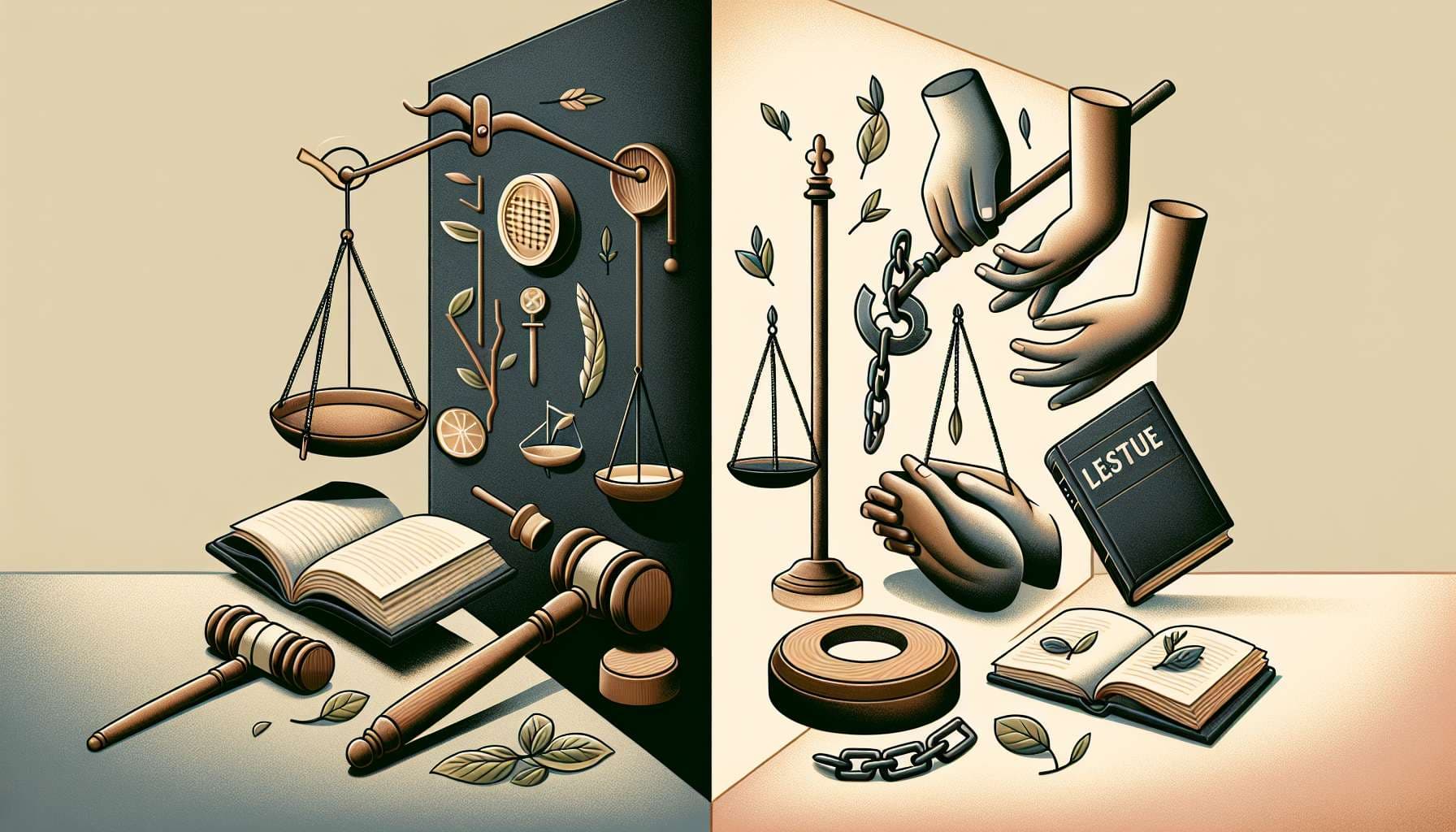
had another good chat with @mattyb today, this time about the death penalty.
I'd actually like to write more here in the description but I'll opt instead for leaving it open to just the question: what do you believe to be more important, justice or forgiveness? open for interpretation on any of these things (justice doesn't imply the death penalty, for example)
Matt has a poll on the death penalty:
Very dependent on the case, but overall in the worst scenario where the crime is conducted intentionally, the justice option’s most important benefit is to discourage people from committing this crime in the first place/in the future
There is no such thing as justice.
@ClubmasterTransparent I like this answer, it's absolutely a fair point. there's no accounting for nuance in polls even with more options, so it's a binary question for the sake of interpretation. what does just governance look like for you?
my feelings in modern society - particularly in the US, where I am now - is that there's a conflation between the two. a highly litigious culture causes people to feel that "closure" is at least somewhat dependent upon/secondary to the level of "justice" served, to the point where people champion some pretty extreme outcomes/retribution at times.
admittedly I'm a bit of a bleeding heart but I'm not naive or woo-woo enough to think forgiveness is the only thing that matters. I do think justice can sometimes be a distraction from the hard slog of finding forgiveness because it's a more tangible thing? I admittedly like to fantasise about a more anarchistic society of self governance where people realise there is a direct and proportionate result to either cooperation or antagonism. this seems like the ideal option for just governance? it's only a fantasy because while I distrust systems more, I have little faith in reframing society to properly counterbalance justice and forgiveness and personal accountability while also taking one another into account. I spent a few recent years living in a rural commune and I've seen how tribalism exists within us no matter the framework, and both justice and forgiveness can be used for manipulation. the thirst for "justice" in particular seems painfully alluring.
When I was visiting Thailand I saw a lot of cats: they were a casual outdoor presence, belonging to no one, but it seemed a lot of the cats had broken tails. I asked my host why, he said "Oh, when the cat is bad, like stealing food or scratching, we grab them by the tail and go -- shhhrekk", pantomiming the tail-breaking action. He pointed at two cats nearby, only one of which had a bent tail: "That's a good one", he said, "and that's a bad one". Further on he pointed out a cat with two bends in its tail and said "That's a very bad one."
This is my story of justice and forgiveness.
@billga this is a good illustration and led me down the mental rabbit hole of human societies where we would do the same thing amongst one another: cutting someone's hand off for stealing a loaf of bread. Hester Prynne and her scarlet letter to represent her sins. pillories in the town square.
in the case of cats there's no way of deterring behaviour because other cats don't understand the correlation between being "bad" and having a kinked tail. breaking a tail seems like a pretty extreme and lazy way to account for behaviour, but I suppose they're not invested in teaching street cats about right and wrong and more interested in knowing when to pay more attention to them. but in a self-governing society this type of justice would theoretically deter people from stealing food or scratching others. what's our equivalent to this and the examples above? just shaming on social media I guess?
@shankypanky Shaming on social media only works if one has the capacity to feel shame.
Take a felony but not a capital offense like burgling: if you burgle, and are caught, and the victim gets all their burgled goods back, did anyone really lose anything? Maybe inconvenience and time spent chasing the burglar, and the feelings of loss and violation that the burgled experiences, but in what way does locking someone up for 5-7 years actually accomplish anything remunerative for the victim or society? It only ends up costing everyone more.
In the medieval times some Europeans would cut the ears off of a convicted thief, which put me in mind of the cat story ("see that guy? he stole something. see that other guy? he stole a lot"). I don't know why, how, or if otoectomy would serve as a deterrent to larceny, but it would clearly indicate to others that this person wasn't to be trusted around unsecured goods.
I believe justice should be served, and forgiveness can follow... but then you start to get into the argument of whether justice is a euphemism for punishment, and does the punishment fit the crime, and in what cases it should be applied. Our friend in Alabama did something terrible, but to have that punishment visited on him after all this time didn't really serve justice to anyone, and it shows no forgiveness.